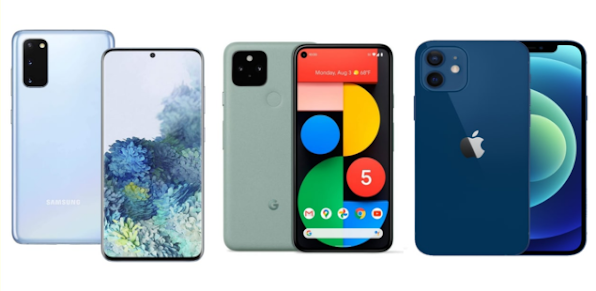Unveiling the Dominance: Exploring the Top Most Used Mobile Brands in the USA
In today's digital age, mobile phones have become an
indispensable part of our lives. The dominance of certain mobile brands in the USA is a fascinating subject, reflecting
not only technological prowess but also consumer preferences. Let's delve into
the intricacies of this mobile landscape and explore the top contenders in the
race for dominance.
Evolution of Mobile Brands
In the early days, mobile phones were basic communication
devices. However, the advent of smartphones revolutionized the industry, influencing how
consumers interact with technology. This evolution significantly impacted
consumer preferences, steering them towards more advanced and feature-rich
devices.
Criteria for Dominance
To understand mobile dominance, we need to consider various
factors. Market share, customer satisfaction, and technological innovation are
crucial benchmarks. Brands that excel in these areas tend to establish a
stronghold in the competitive market.
Top Mobile Brands in the USA
Apple:
Undoubtedly, Apple stands out as a leader in the mobile
industry. The iconic iPhones have not only captured the
market but have also created a loyal user base. The seamless integration within
the iOS ecosystem adds to the brand's appeal, making it a dominant force.
Samsung:
Samsung, with its array of
Android-based Galaxy series, has secured a significant share in the US market.
The diverse range of smartphones caters to various consumer preferences,
contributing to Samsung's dominance.
Emerging Players
Google Pixel:
Google Pixel, although relatively
new compared to industry giants, has carved its niche. Unique features and
Google's overall impact on the tech market contribute to the brand's growing
influence in the mobile landscape.
OnePlus:
Known for its "Flagship Killers" concept, OnePlus has gained global success. The brand's ability to offer
high-end features at competitive prices has appealed to a wide range of
consumers, solidifying its position in the market.
Consumer Preferences
Brand loyalty plays a pivotal role in the dominance of
mobile brands. Understanding the factors that influence consumer purchases,
such as design, features, and user experience, provides insights into the
ongoing trends in mobile usage.
Also Read: From
Note to Fold: Exploring the Evolution of Samsung Mobiles in the USA
Marketing Strategies
Successful mobile brands employ diverse marketing
strategies. Apple's branding approach focuses on luxury and exclusivity, while
Samsung adopts a more varied approach with extensive marketing campaigns.
Google relies heavily on its online presence, leveraging its strong digital ecosystem.
Challenges Faced by Mobile Brands
Despite their dominance, mobile brands encounter challenges.
Intense competition, technological hurdles, and evolving consumer expectations
pose constant obstacles that these brands must navigate to maintain their edge
in the market.
Future of Mobile Dominance
Anticipating future trends is essential for mobile brands to
stay relevant. The constant evolution of technology, potential disruptions, and
global influences shape the future landscape of mobile dominance.
Conclusion
Exploring the dominance of mobile brands in the USA reveals
a dynamic and competitive landscape. The choices consumers make, influenced by
factors like brand loyalty and technological innovation, contribute to the
ever-shifting balance of power in the mobile industry.
FAQs
Are iPhones still the most popular mobile devices in the
USA?
Yes, iPhones continue to hold a significant share of the
market, thanks to their popularity and the cohesive iOS ecosystem.
What sets Google Pixel apart from other mobile brands?
Google Pixel stands out with its unique features, often
incorporating cutting-edge technologies, and benefits from Google's broader
influence.
How does brand loyalty impact the dominance of mobile
brands?
Brand loyalty plays a crucial role as users tend to stick
with brands that consistently meet their expectations, contributing to
long-term dominance.
What challenges do mobile brands face in the competitive
market?
Mobile brands face challenges such as intense competition,
rapid technological changes, and meeting ever-growing consumer expectations.
What can we expect in the future of mobile dominance?
The future of mobile dominance will likely be shaped by
evolving technologies, global market dynamics, and emerging consumer
preferences.




Comments
Post a Comment